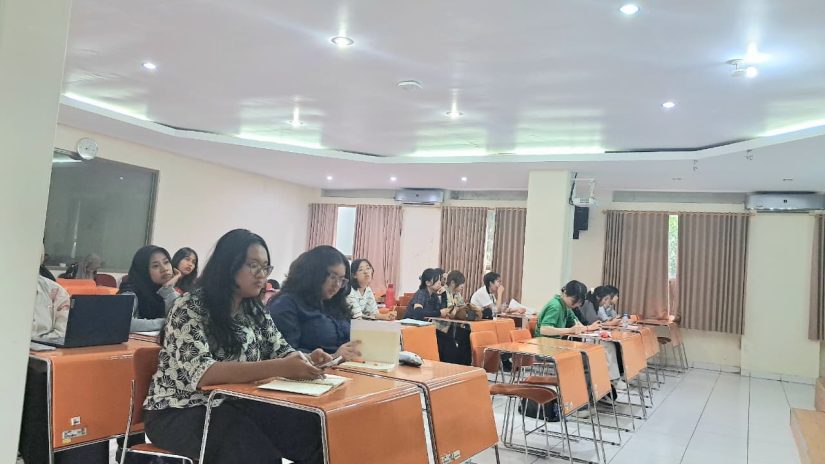
Yogyakarta, 19/9/2025– The Department of Archaeology, Faculty of Cultural Sciences (FIB) Universitas Gadjah Mada officially opened its Summer School program in collaboration with Iwate University, Japan, at the Multimedia Room, Margono Building, FIB UGM. The opening session featured Dwi Pratnyawan, S.S., M.A., who delivered a lecture titled Protecting Archaeological Site (Cultural Heritage).
The event brought together Archaeology students from UGM and international students from Iwate University. This academic forum highlighted the significance of safeguarding cultural heritage as both an identity marker and a collective memory of society.
In his presentation, Dwi explained that cultural heritage preservation, based on Indonesia’s Cultural Heritage Law, rests on three pillars: Protection, Development, and Utilization. He provided concrete examples, including rescue excavations at the Morangan Temple site near Prambanan, regular maintenance at Prambanan’s Siwa Temple, and zoning efforts to establish protective boundaries.
Development, he emphasized, involves research, revitalization, and adaptation, while utilization aims to maximize public benefit without compromising sustainability. However, he also addressed critical challenges such as weak enforcement—citing the use of Borobudur for a Red Bull commercial and damage to Majapahit sites due to illegal brick excavations—and uncoordinated developments, such as the destruction of parts of Trowulan to build a new museum.
The session concluded with an engaging Q&A discussion, where both Indonesian and Japanese students raised questions on how best to preserve cultural heritage amid rapid modernization and urban development.
This initiative strongly aligns with the global Sustainable Development Goals (SDGs), particularly SDG 11 (Sustainable Cities and Communities), which stresses the importance of protecting the world’s cultural heritage, and SDG 17 (Partnerships for the Goals), as reflected in the international collaboration between UGM and Iwate University.

